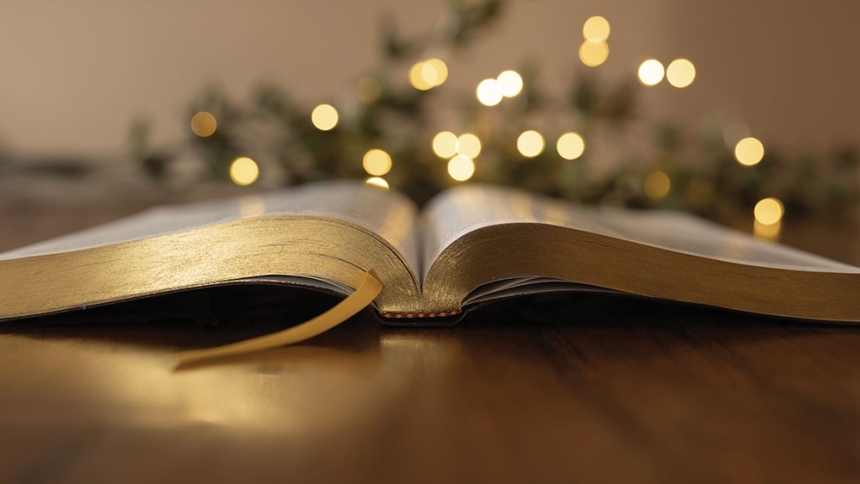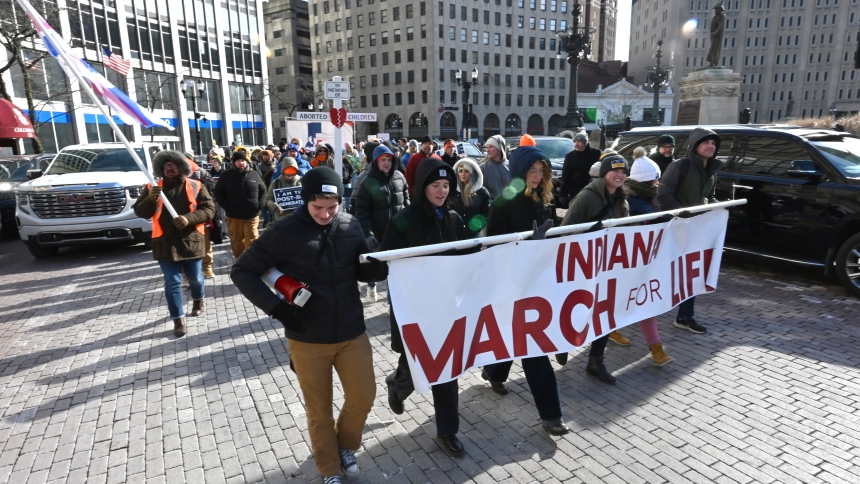
As we approach the end of October, we observe nature surrendering to the annual cycle of death. Leafless trees, harvested fields, shorter days and cold nights point to the slow and steady creep of winter’s grasp. The liturgy of the Church embraces this mystery as well. In November, we pray for and remember the dead, the readings for Mass speak of the end of the world and the final judgment as we come once again to the end of the liturgical year on the feast of Christ the King (Nov. 22). The Church invites us to meditate on the brevity of this life, the mystery of death and the promise of eternity.
One of the most significant events in my life was the death of my brother Patrick. Born on Saint Patrick’s Day, 1959, he contracted liver cancer at the age of ten, and died on November 26, 1969, the day after my mother’s birthday and the day before Thanksgiving. Some people assume that children do not understand death; I beg to differ. I remember Patrick’s illness and passing as if it happened the day before yesterday.
Going through my own sorrow and watching my parents grieve up close as a six-year-old forever marked my heart and life. A strange and sad emptiness entered our family and our house. I remember one day at dinner, my father stood up and took the empty chair that Patrick had always sat in out of the kitchen; it did not return for many years. Our sorrow and loss as a family gradually healed through faith, prayer and the kindness of family and friends, but the experience both wounded and transformed us.
All of us, as mortal human beings, face the certainty of death, that of our loved ones and our own passing. From the moment we are born, we steadily move toward that guaranteed moment when our heart will stop beating and our final breath exhales, as we pass over from this life, never to return.
We fear death as the great unknown; we resent death as a robber and destroyer; we fight death as the enemy of all we know ourselves and the world to be. We experience death as profoundly unnatural and so we should. It doesn’t feel like part of God’s plan for us. The book of Genesis views death as the fruit of sin, as the ultimate consequence of humanity’s choice to turn away from the life-giving relationship with God which sustains all things in breath and being.
The astonishing good news of our faith in Christ is that God carves a path for us through the tragedy of death by sending us Jesus. By accepting our sin and by submitting Himself to our death on that terrible cross, Jesus embraces everything that is empty, evil, dark and dead within us, and then through the greatest act of self-oblation, lifts it all to the Father.
The resurrection of Christ from the dead becomes the Father’s response to this radical sacrificial gift offered by the Son. When the centurion pierces the side of the crucified Christ, blood and water flow out, symbolizing the torrent of mercy and forgiveness which we most profoundly encounter in the water of baptism and the Body and Blood of the Eucharist.
Life conquers death; mercy overpowers sin; love transforms hatred. God suffers with us, dies with us, and ultimately rises for us. The shocking mercy of God leads us through the pain, dread and loneliness of the valley of death into the comm, light and joy of the eternal Kingdom of heaven. The Paschal Mystery does not magically remove suffering and death from our human experience, but shows us a way through and out of it. There is light at the end of the tunnel!
In his beautiful Canticle of the Sun, Francis of Assisi names the sun and moon, the wind and the stars, fire and water, the earth and all creatures as brother and sister. He even includes a verse honoring Sister Death; this great saint who learned to radically die to self and hand his whole being over to the Lord of Life had, in the end, befriended his mortality; for Francis, death was the sweet portal through which we enter to meet God and enjoy the divine embrace forever. How liberating and peaceful it is to sit with someone who has wrestled with the angel of death and come to terms with it! Such a person exudes a tranquility which is not of this world.
This month of November, I invite all of us to pray for all of the deceased members of our diocese, parishes and families with particular attention and love. We pray for all those mourning the loss of a loved one. We ask the Lord to console and strengthen us in the deep conviction that death does not have the final word on our lives and that we will live forever with God.
As painful as it was, my brother’s death blessed me. This tragic experience opened me to ask the big questions and brought me to a richer faith; gave me a deeper compassion for the suffering of others and gained me a powerful intercessor in heaven. In many ways, I feel that my vocation to the priesthood was nurtured by the tragic death of Patrick. He has prayed and loved me to the place where I am.
+ Donald J. Hying


